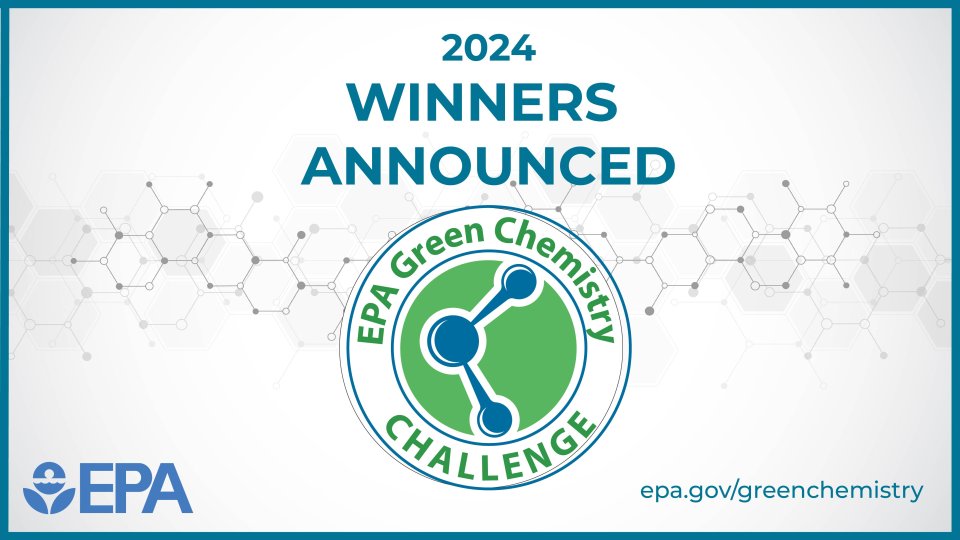Green Chemistry Challenge Winners

EPA announced the winners of the 2024 Green Chemistry Challenge Awards for new and innovative green chemistry technologies. Through the design of chemical products and processes that reduce or eliminate the generation and use of hazardous substances, this year’s winners have developed solutions to significant environmental challenges such as climate change and spur innovation and economic development. Read the press release.
2024 Green Chemistry Challenge Award Winners:
Academic Category: University of Delaware, Newark, Delaware, for developing a process to generate three classes of lubricant base oils commonly used in vehicles and industrial machinery. The new method makes the oil from plants rather than petroleum-based materials. This process also eliminates some hazardous chemicals used in the traditional process.
Small Business Award: Viridis Chemical Company, Columbus, Nebraska, for developing a process for making ethyl acetate, a solvent widely used in industry and consumer products, from corn instead of chemicals derived from coal or methane. The hydrogen gas byproduct from the process can also be used to generate some of the energy required to operate the plant.
Greener Synthetic Pathways: Merck & Co., Inc., Rahway, New Jersey, for developing a new “continuous process” for manufacturing an anti-cancer therapy drug. The new process prevents pollution by significantly reducing energy and water use compared to the traditional manufacturing process.
Design of Safer and Degradable Chemicals: Pro Farm Group, a Subsidiary of Bioceres Crop Solutions, Davis, California, for developing RinoTec™ Technology, an enhanced microbial pesticide for crops including corn, soybean, cotton and potatoes that reduces the environmental load of other pesticides.
Specific Environmental Benefit – Climate Change: PhoSul®, Sugar City, Idaho, for making phosphate fertilizer that avoids hazardous chemicals and waste emissions associated with traditional phosphate fertilizer production, such as strong acids, heavy metals, and radioactive materials.
Disclaimer: Mention of trade names, products, or services does not convey official EPA approval, endorsement, or recommendation.
